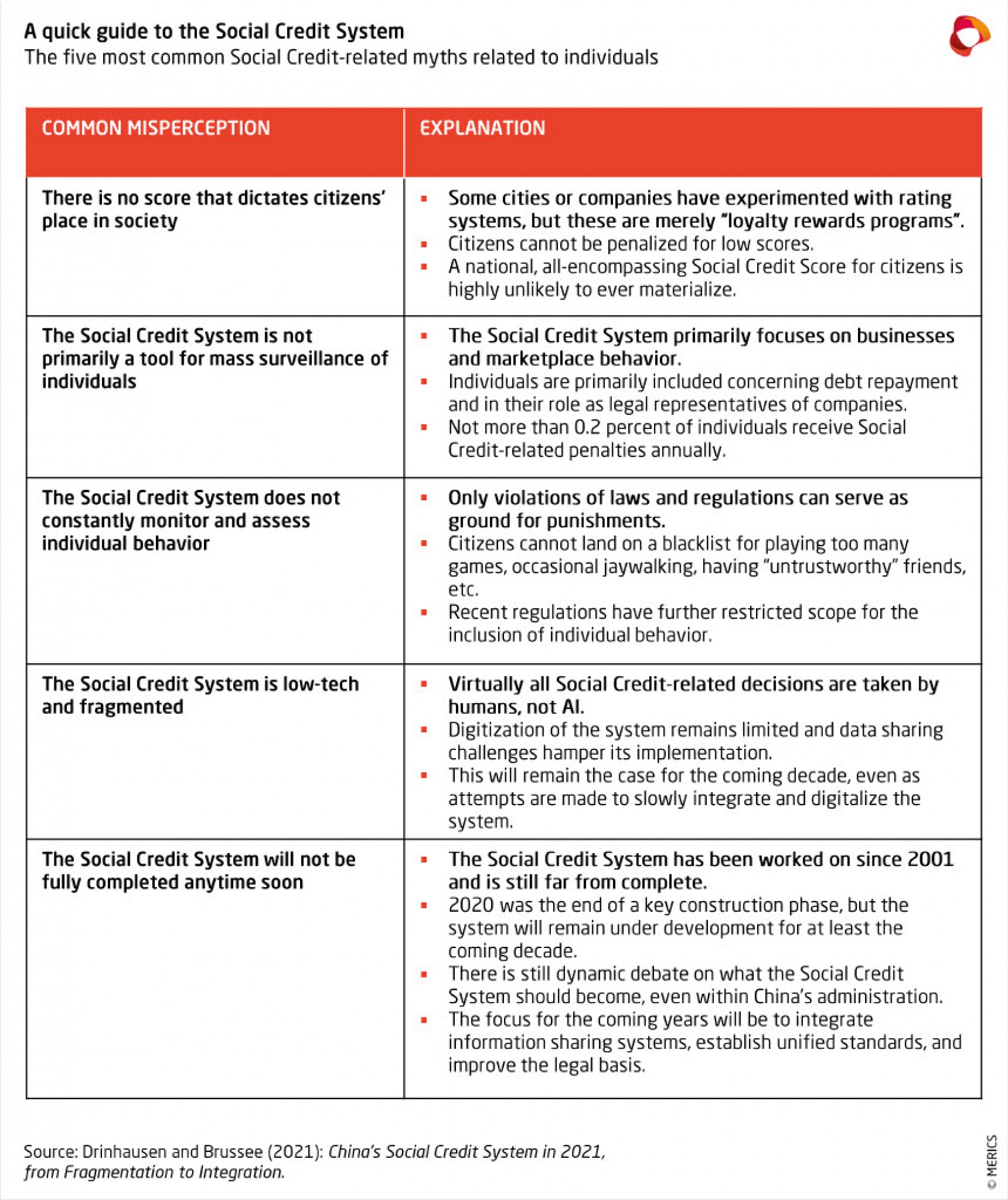Checking your credit score does not lower it. This is a common misconception.
Understanding the impact of credit score checks is essential for maintaining good financial health. Many people fear that peeking at their credit scores might dent their creditworthiness. Contrary to popular belief, when you check your own credit score, it is considered a soft inquiry and causes no harm.
This action, in fact, encourages individuals to stay informed about their credit status, thus promoting responsible credit management. It’s critical to distinguish between soft inquiries, which are harmless, and hard inquiries that lenders make when you apply for credit, which can temporarily lower your score. By regularly monitoring your credit score, not only do you stay on top of your financial situation, but you also can spot any errors or fraudulent activities early on. Keep your finances secure by confidently checking your credit score without the fear of it dropping.
The Credit Score Conundrum
The Credit Score Conundrum puzzles many savvy consumers. A common concern is the impact of checking your own credit score. People often hesitate to monitor their credit, fearing it may somehow lower their score. Let’s demystify the fundamentals and bust some common myths to clear the air.
Fundamentals Of Credit Scores
Credit scores play a critical role in financial health. They are numerical expressions based on credit files that represent an individual’s creditworthiness. Lenders use these scores to gauge the risk of lending money.
- Credit reports contain your credit history.
- Scores range typically from 300 to 850.
- Higher scores mean lower credit risks.
Two types of credit checks exist:
- Hard inquiries: Lenders do these when you apply for credit.
- Soft inquiries: Happen when you check your score or a company checks it for offers.
A crucial point: Only hard inquiries can affect your score. Soft inquiries do not impact your credit score.
Common Myths Surrounding Credit Checks
Many myths surround the act of checking credit scores. It’s time to address these myths with facts.
| Myth | Fact |
|---|---|
| Checking your credit score lowers it. | False. Personal credit checks do not lower your score. |
| Every credit inquiry drops your score. | Only hard inquiries can have a minor impact. |
| Denial of credit ruins your score. | It’s the inquiry, not the result, that can affect your score. And it’s usually a small dip. |
The act of simply monitoring your credit is actually beneficial. Stay informed on your credit health without fear. Remember, a well-monitored credit score is a well-maintained one.

Credit: www.cnbc.com
Types Of Credit Inquiries
Understanding the impact of credit score checks is key to maintaining your financial health. Each time your credit report is evaluated, it falls under one of two types of credit inquiries: soft or hard. Knowing the difference can save you from an unexpected dip in your credit score.
Soft Inquiries Explained
Soft inquiries, or soft pulls, are credit checks that do not affect your credit score. These inquiries can come from:
- Your own credit score review
- Credit card pre-approvals
- Background checks by employers
Because they are not tied to a specific application for new credit, soft inquiries can occur without your direct permission and will not be visible to lenders.
Hard Inquiries Uncovered
Hard inquiries, on the other hand, can potentially lower your credit score. These are checks made by lenders when you apply for:
- Credit cards
- Loans
- Mortgages
They require your explicit consent and are visible on your credit report to other lenders. A hard inquiry can slightly reduce your credit score for a short period.
| Type of Inquiry | Consent Needed | Impact on Credit Score | Visible to Lenders |
|---|---|---|---|
| Soft Inquiry | No | No | No |
| Hard Inquiry | Yes | Yes, slight decrease | Yes |
Scrutinizing The Myth
Think checking your credit score could hurt it? It’s time we investigate this common belief.
Origins Of The Credit Score Myth
The idea that peeking at your credit score can damage it has a shaky past. This myth likely stems from a confusion between ‘hard’ and ‘soft’ inquiries on a credit report. Hard inquiries, typically made by lenders, can have an impact. Soft inquiries, like when you check your score, do not affect it. Yet, somewhere down the line, these two got tangled up in financial folklore.
Listed below are a few sources that might have fueled this myth:
- Misinformation shared through word of mouth.
- Lack of clarity between different types of credit checks.
- Over-simplified advice provided by financial commentators.
Reality Of Checking Your Own Score
When you log in to view your score, you are not hurting your credit health. This self-initiated pull is a soft inquiry, which has zero impact on your score. Financial institutions and credit bureaus expect consumers to monitor their credit health. Let’s look at the reality:
| Type of Inquiry | Impact on Credit Score |
|---|---|
| Hard Inquiry | Potential Decrease |
| Soft Inquiry | No Impact |
Monitoring your score is actually a smart habit. It allows you to stay on top of your credit status and alert you to any potential identity theft swiftly. Credit bureaus encourage regular checks. They provide services and collaborate with personal finance apps to make checking your score easy and harmless.
Impact On Your Credit Health
The impact checking your credit score has on your credit health sparks many myths and misconceptions. It’s important to know what really affects your score versus common hearsay. Let’s dissect the short-term and long-term implications of peeking at your credit score.
Short-term Vs Long-term Effects
Many worry that checking their credit score can damage it. This fear stems from confusion about hard and soft inquiries. A soft inquiry occurs when you check your own credit score. It is harmless and does not impact your credit score. Conversely, hard inquiries happen when lenders check your credit for a loan or credit card application. These can slightly lower your score, but the effect is temporary. Over time, the influence of a hard inquiry diminishes.
- Soft inquiries: No impact on credit score.
- Hard inquiries: Minimal short-term impact on credit score.
Factors That Truly Affect Your Score
Certain activities affect your credit score more than others. These include:
| Factor | Impact Level |
|---|---|
| Payment History | High |
| Credit Utilization | High |
| Length of Credit History | Medium |
| New Credit | Low |
| Credit Mix | Low |
To maintain a healthy credit score, focus on making payments on time, keeping low balances on credit cards, and avoiding opening several new credit accounts in a short period. Remember to regularly check your credit score to stay informed. This practice does not lower your score and keeps you on track to building healthier credit.
How To Monitor Your Credit Responsibly
Many people worry that checking their credit score could hurt it. This fear can keep them from keeping an eye on their financial health. Yet, it’s crucial to know that the right kind of credit check won’t knock points off your score. Let’s explore how you can watch over your credit without causing any damage.
Best Practices For Credit Monitoring
Monitoring your credit score is like keeping a close watch on the pulse of your financial health. To do this without harm:
- Understand the difference between ‘hard’ and ‘soft’ inquiries.
- ‘Soft’ inquiries are what you do; they don’t affect your score.
- ‘Hard’ inquiries are made by lenders and can impact your score.
- Check your credit reports annually for free from the main bureaus.
- Stay alert for any signs of identity theft or errors.
- Keep personal credit checks to a sensible number.
Tools And Services For Regular Checks
Today, numerous tools and services can help you monitor your credit score regularly:
Credit Monitoring Services: Many offer real-time alerts on credit activity.
- Monthly score updates.
- Dark web surveillance.
- Identity theft insurance.
Free Credit Reporting Websites: These sites provide easy access to your scores:
- AnnualCreditReport.com for annual free reports.
- Credit Karma for scores and credit advice.
- Credit Sesame for personalized tips.
Banking Services: Some banks provide score checks as part of their services.
| Bank | Credit Bureau Used | Frequency of Check |
|---|---|---|
| Chase | Experian | Weekly |
| Capital One | TransUnion | Weekly |
| Bank of America | TransUnion | Monthly |
By using these tools with care, you can stay on top of your credit without the fear of lowering your score.

Mitigating The Risks Of Credit Damage
Many fear checking their credit scores could harm them. Let’s clear the air.
There are two types of credit inquiries: soft and hard. Soft ones, like when you check your score, don’t hurt it. Hard ones, however, can. These happen typically when banks or lenders review your credit for a loan or credit card. Knowing the difference keeps your score safe.
Strategies To Avoid Unnecessary Hard Inquiries
Limit applications for new credit. Only apply when needed.
Pre-qualify for loans without a hard hit. Some lenders allow this.
When shopping for auto or home loans, do so within a short time frame. Credit bureaus often count these inquiries as one.
Building A Strong Credit History
- Pay bills on time. Even a single late payment can hurt.
- Keep balance low on credit cards. High balances equal high utilization.
- Don’t close old accounts. Long credit history is good.
- Monitor credit regularly. Catch errors fast, protect your score.

Credit: merics.org
Frequently Asked Questions On Does Checking Your Credit Score Lower It
Does Checking Your Credit Score Affect It?
No, checking your credit score does not affect it. This is called a soft inquiry and has no impact on your credit score. Viewing your own credit score is a responsible financial habit and is encouraged.
What Is A Hard Inquiry Vs. Soft Inquiry?
A hard inquiry occurs when a lender checks your credit for a loan or credit application, which may slightly lower your score. A soft inquiry, like checking your own score, doesn’t affect your credit at all.
How Often Should I Check My Credit Score?
It’s a good practice to check your credit score regularly, at least once a year. This does not harm your credit and helps you stay informed about your financial health.
Can Checking Credit Score Improve Financial Health?
Yes, regularly checking your credit score can lead to improvements in your financial health. It helps you understand your credit position, notice any errors early, and make informed decisions about credit use.
Conclusion
Understanding the impact of credit checks is crucial. Rest assured, checking your own score typically won’t dent it. It’s a myth that needs busting. Stay informed about your financial standing without fear. Routinely monitoring your credit can keep you on track for financial health.
